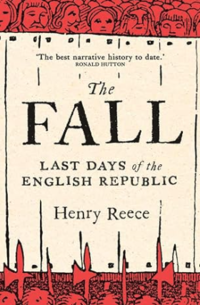OFF THE SHELF: JUNE 2024

OFF THE SHELF: JUNE 2024
Glorious Oxford books this month, lots of history, a dab of protons and a spot of God
Published: 31 May 2024
Author: Richard Lofthouse
Share this article

Experiencing Oxford by Ian Davis (2024)
We wrote here about Ian’s wonderful book upon the publication of the first edition in 2020, just as COVID-19 gripped the world. Here, four years later, having rapidly sold out, he has published a Second Edition with an additional 68-pages and eight new paintings, so that an already handsome book is now almost 400 pages. The author betrays his soul as well as his artistic talent, which is everywhere. He recounts how COVID doubled the cost of paper and threatened his entire project, but upon a prayer came a wing – in the form of a mysterious cheque, no restrictions! That single act of benevolence has allowed this edition. Formerly an architect, Ian sees buildings not just for their design but for their function and for their character. Around that swirl real human beings and piles of brilliant stories. One that caught our view is a watercolour of the entrance to Corpus Christi College on a warm winter sunny morning in 1991. A student is depicted standing to one side reading, her long shadow forming part of the composition. Ian says that the painting was published in Oxford Today, all those years ago, and that he was subsequently contacted by a chap who recognised said student as his girlfriend, and insists that she was reading a love letter he’d written her back in the days when paper post and porter’s lodges could be laden with the sort of romantic anticipation that can’t be the immediate/always quality of a smart phone. So taken was the former student that he commissioned a copy. As Ian notes a third of a century later, ‘What a strange set of experiences can be triggered by a single watercolour…!’ But more obvious still are all the very recent additions to the University including curvilinear quadrangle of Gradel, within New College, only open since 2023. In this and every sense the book spans fifty years of Ian living and working in Oxford, a sensory celebration in one volume, discounted to alumni at £25.00 and obtainable at www.ianrobertdavis.com.

From Tudor to Stuart: the Regime Change from Elizabeth I to James I by Susan Doran (Oxford University Press, June 6, 2024)
Originally matriculating at St Anne’s college and now a lecturer in Oxford’s History Faculty, the author says this volume has absorbed six years of original research, and has led her forwards from Elizabeth 1 to her successor, James I and his challenging first decade on the throne. ‘After questioning the ease in which James took the throne, I examine the extent of continuities and changes in personnel, institutions, policies, and political culture from the time of James's accession until the death of his principal secretary, Robert Cecil, and his eldest son, Prince Henry. As I have a strong interest in literature, art and material culture, I use a wide range of imaginative texts and visual materials among my sources.’ OUP have brought the subject matter alive with an imaginative volume.

Charge: Why Does Gravity Rule? by Frank Close (Oxford University Press, May 23, 2024)
Professor Emeritus of Theoretical Physics, and Fellow Emeritus at Exeter College, the author asks why the charges of the proton and electron are opposite and exactly equal, ‘one of the deepest unresolved puzzles of fundamental physics. The book is at once a consideration of the current state of knowledge, a journey into the quantum subatomic world of particles and a tug towards ‘a deeper unity of all forces.’

The Fall: Last Days of the English Republic by Henry Reece (Yale University Press, June 25, 2024)
In a strange coincidence, Henry’s remarkable piece of research echoes Susan’s study (above) – both books take a scalpel to the received historiography of a dramatic succession in English history, in both cases turning points. But in this case we are looking at the end of the English Republic and an impressive argument to the effect that despite the death of Oliver Cromwell in 1658, the restoration of the monarchy was in no sense inevitable. Richard Cromwell’s Protectorate ‘had deep roots in the political nation, the Rump Parliament mobilised its supporters impressively, and the country showed little interest in returning to the old order until the republic had collapsed’. The book could use a glossary of terms and takes for granted some sort of working knowledge of Civil War England. But beyond that price of entry it is an impressively marshalled argument by a former graduate student (St John’s, 1981), chief executive of Oxford University Press between 1998-2009, and Emeritus Fellow of Jesus College. How Yale snapped him up we do not know, but either way, the handsome volume trains a searing spotlight on England’s short-lived period of republican rule and is another reminder that history can go either way, ruled as much by exigency and chance as by the weight of gravity of events and personalities.

The Fabergé Girl by Ina Christova
Bulgarian writer Ina Christova (St Hilda’s, 2007) notes, ‘I grew up with stories about Fabergé eggs, and the history and folklore of the region. But whilst Carl Fabergé was, of course, an impressive and eccentric figure in his own right, I really wanted to shine a light on an incredible woman who achieved so much more than many women did at the time.’ So came about this inspiring work of historical fiction, based on the incredible true story of Alma Pihl, the only female jewellery designer at the House of Fabergé and her journey during the age of silver culture in St Petersburg. At once a poignant love story, a magical coming of age tale and a haunting and evocative account of one of Russia’s darkest periods of history, this book is a riveting read.

Lottie Deno: A Novel of the Civil War & the American Southwest by Frank Thurmond (Park Hurst Brothers, March 2024)
And why not another work of historical fiction to accompany alumni on early summer holidays that may be unfurling this month. Thurmond's (Univ, 1990) novel follows a girl becoming a woman in pre-Civil War Kentucky, through a romantic involvement in Detroit, and then into adulthood as she becomes the notorious gambler, Lottie Deno, in postwar New Orleans, San Antonio, and points Southwest. Her business acumen and fearlessness bring opportunities. Her love life takes several turns, and her character matures in often colourful, surprising ways.

Other books to mention this month include Educational Collateral Damage: Disadvantaged Student, Exclusion and Social Justice by Anton Mclean (St Anne’s, 2009) (Bristol University Press, April 2024), where the author examines policies of exclusion and expulsion in the school system and argues that there is a fairer way of proceeding; Good Call – Learning to make decisions with God by Peter Wilkinson (Jesus, 1973) and Iain Dunbar (BRF, 2023), where the authors offer coaching within a spiritual context on how to make good decisions, while recounting some of their own, not all optimal! Finally and as an appropriate book end Matthew Rice’s Oxford (Quarto, April 2024) – he’s not an alum but it would churlish not to mention such a glorious feast of architecture expressed as watercolours and wit. This is an elegantly executed guide to Oxford that urges you to go on a huge wander of the streets, paths, meadows and parks of Oxford. We love the intriguing decision to go with a night time cover illustration of the Radcliffe Camera, currently the scene of an encampment by pro-Palestine protestors.
Off the Shelf typically concerns books where there is an Oxford connection, whether the place, the University or of course the author. Our editorial selection rests on books appealing to the broadest alumni audience.
For more recommended books from Oxford academics and alumni, head over to the @oxfordalumni social channels on Instagram, Facebook and X.
Alumni can claim 15% discount in any Blackwell's store with a My Oxford Card.
Alumni can claim 20% discount at Oxford University Press.
Join the Oxford Alumni Book Club at: www.alumni.ox.ac.uk/book-club
Lead Image: Getty Images















